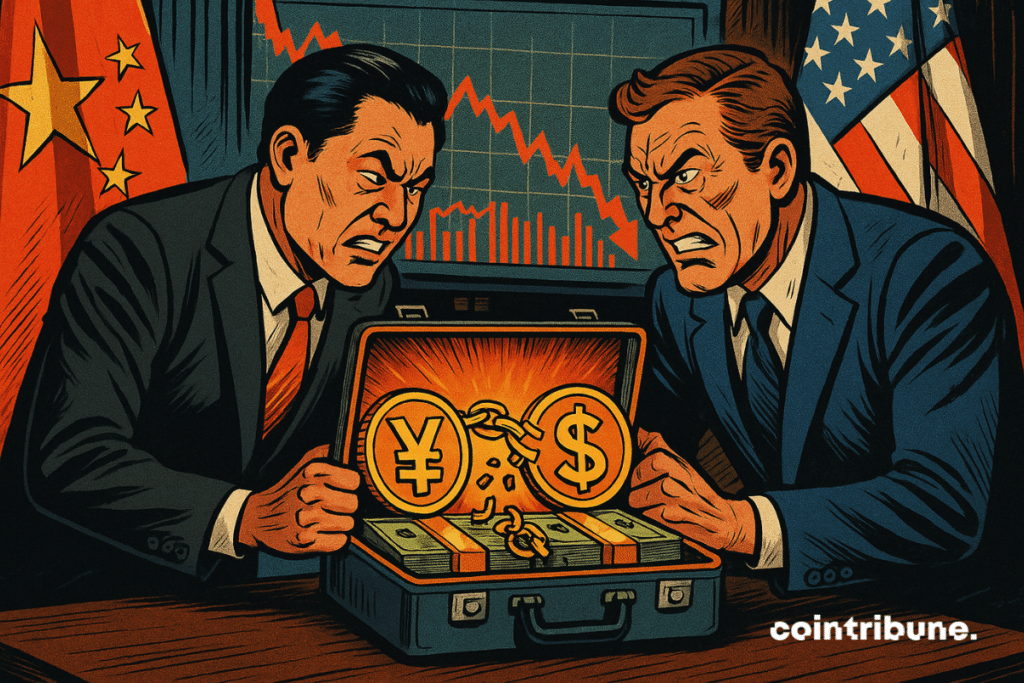7h05 ▪
3
min read ▪ by
While the Sino-American trade war seemed frozen in an endless retaliation game, an unexpected gesture reignites hope: Beijing agrees to official talks with Washington. A first in months. This meeting, much more than a simple diplomatic exchange, crystallizes the deep tensions shaking global trade and the economy of the two giants.


In Brief
- China agrees to talks with the United States in Geneva.
- Tariff tensions still weigh on the global economy.
- A signal of openness, without relinquishing national principles.
Geneva, stage of an economic showdown disguised as negotiation
U.S. Treasury Secretary Scott Bessent and Trade Representative Jamieson Greer will meet this weekend with a high-level Chinese delegation in Geneva.
This meeting marks a turning point. It is the first official roundtable since the imposition of duties imposed by Donald Trump. These sanctions, reaching up to 145% on certain Chinese products, triggered an immediate response from Beijing.
The escalation has weighed down economic relations between the two countries. American companies are canceling orders, freezing investments, and modifying supply chains. In China, the slowdown in exports is beginning to be felt, increasing domestic pressure on the government.
For Scott Bessent, these tariffs represent a near embargo. He states he wants “fair trade, not decoupling”. Yet, American intentions remain unclear: do they really want a compromise or to impose a new power dynamic?
Beijing moves its pieces forward
The Chinese Ministry of Commerce confirmed this week that its vice Premier will meet the American envoys in Switzerland. According to Beijing, this decision was made after a “careful” assessment of global stakes and national interests. In other words: China shows its willingness to avoid isolation, while yielding nothing on its principles.
The tone remains firm. A ministry spokesperson stated that Beijing will neither sacrifice its principles nor global justice for a mere facade agreement. This stance aims to reassure the Chinese public while sending a message to other economic powers: China remains open, but it is not for sale.
For economists, these negotiations come at the right time. Price increases related to tariffs are already hitting American consumers. Real estate, automobile, food: all sectors are affected. And with a post-COVID economy still fragile, the specter of a recession looms.
Behind these seemingly technical negotiations is a geopolitical chess game. Tariffs have become the new pawns of economic influence. It remains to be seen if Geneva will be the start of easing tensions… or just a temporary reprieve in a trade cold war that dares not name itself.
Maximize your Cointribune experience with our “Read to Earn” program! For every article you read, earn points and access exclusive rewards. Sign up now and start earning benefits.


Fascinated by Bitcoin since 2017, Evariste has continuously researched the subject. While his initial interest was in trading, he now actively seeks to understand all advances centered on cryptocurrencies. As an editor, he strives to consistently deliver high-quality work that reflects the state of the sector as a whole.
DISCLAIMER
The views, thoughts, and opinions expressed in this article belong solely to the author, and should not be taken as investment advice. Do your own research before taking any investment decisions.

